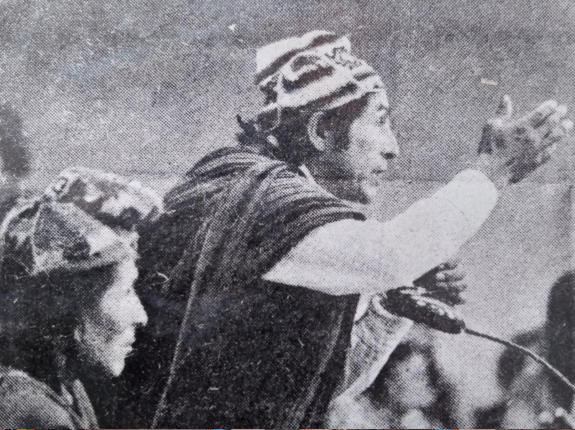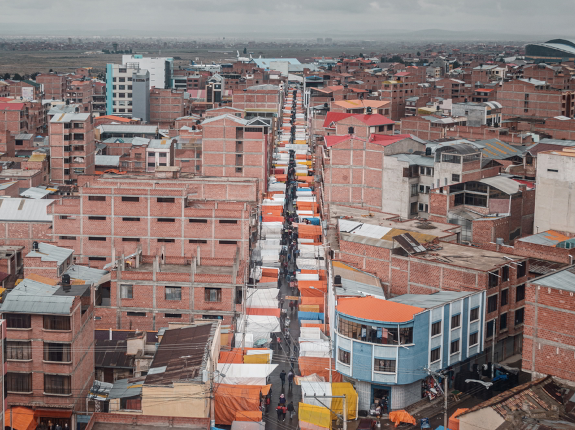Ruben Darío Chambi
Reconstituting Suma Qamaña: Economic practices and expressions of well-being among Aymara traders in the city of El Alto, Bolivia
Suma Qamaña is an Aymara concept that precedes and gives rise to "Vivir Bien", a category widely used as a philosophical contribution of Indigenous peoples in Latin America in politics and social sciences, based on principles such as complementarity with mother earth and community life. Since 2009, the Bolivian state has incorporated "Vivir Bien" into its public policies, presenting it as proof of its anti-capitalist position, as it is seen as the antithesis of Western culture and the market economy.
However, a historical look at Suma Qamaña shows a different intention in the ideas of its creators. Suma Qamaña was conceived by Aymara thinkers who, between the 1970s and 1980s, arrived from rural areas to settle in what would become the future city of El Alto. Influenced by global struggles for decolonisation, they created concepts and symbols that challenged the Bolivian state, which they considered colonial. Suma Qamaña, conceived under their own logics, was proposed as a perspective of well-being, a concept that would allow them to express their economic, social, and political aspirations in the face of an exclusionary urban society.
Based on a historical and ethnographic study, this doctoral thesis aims to trace Suma Qamaña as an anti-colonial Aymara concept of the 1970s and 1980s (different from “Vivir Bien”) and to analyse in which ways this notion of well-being manifests itself among contemporary Aymara traders in El Alto. In recent years, this group has become a prolific sector in terms of social, economic, and political positioning, giving way to novel expressions that reconfigure the urban. The aim is to delve into the logics of contemporary Aymara well-being, its transitions and projections and, in this process, to discover perspectives that go beyond the official discourses that present these people as communitarian and anti-mercantile societies.
 Constantino Lima, Aymara leader raising the issue of decolonization at a conference in Geneva in the 1970s. Photo: Lima’s personal archive, 1970.
Constantino Lima, Aymara leader raising the issue of decolonization at a conference in Geneva in the 1970s. Photo: Lima’s personal archive, 1970.
 Traders in the streets of the Bolivian city of El Alto today. Photo: Alice Coronel, 2021.
Traders in the streets of the Bolivian city of El Alto today. Photo: Alice Coronel, 2021.

